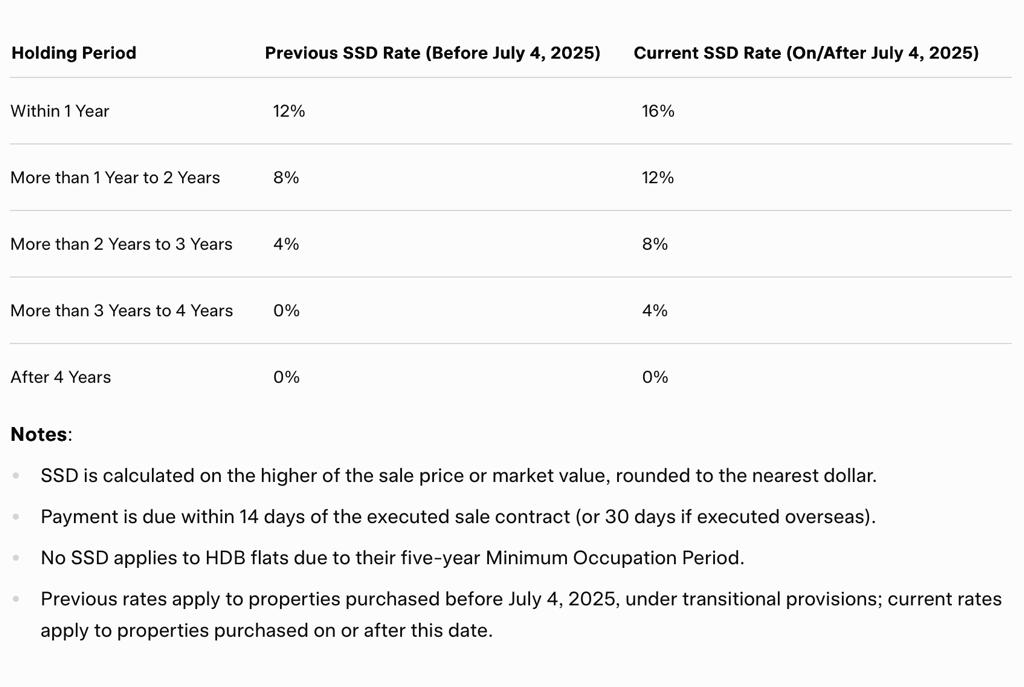Navigating the Latest Singapore Seller Stamp Duty Measure: Updates and Implications
7/4/20252 min read


Introduction to the Latest Seller’s Stamp Duty Measures
Singapore’s real estate market has seen significant regulatory updates to stabilize property prices and curb speculative trading. The latest changes to the Seller’s Stamp Duty (SSD), effective from July 4, 2025, aim to promote long-term property ownership and address the rise in sub-sale transactions (e.g., 1,306 sub-sales in 2024, up from 178 in 2020). Understanding these updates is essential for property sellers navigating Singapore’s evolving real estate landscape.
Updates on Seller’s Stamp Duty
The revised SSD applies to residential properties purchased on or after July 4, 2025, extending the holding period from three to four years and increasing rates by four percentage points. Unlike the previous flat-rate structure, the updated SSD uses tiered rates based on the holding period. Properties sold within one year of purchase incur the highest rate, while those held for four years or more are exempt from SSD. This approach discourages short-term speculative sales and encourages longer-term investment.
The updated SSD rules have significant implications for property sellers in Singapore. The higher rates and extended holding period increase the cost of short-term sales, requiring sellers to carefully plan their exit strategies. For example, selling a $2 million property within one year now incurs an SSD of $320,000 (16%), compared to $240,000 (12%) previously. Holding properties for at least four years can eliminate SSD costs, potentially increasing profits.
Sellers planning short-term sales may face reduced incentives due to the higher SSD, which could lead to lower inventory in the market as some delay sales. This may stabilize prices but could also create challenges for buyers seeking options. Sellers should conduct a thorough financial analysis to weigh the costs of early sales against the benefits of longer holding periods.
Tips for Navigating the New Regulations
To effectively manage the new SSD regulations, property sellers should consider the following:
Stay Informed: Monitor property market trends and regulatory updates via reliable sources like the Inland Revenue Authority of Singapore (IRAS) or MND announcements.
Consult Professionals: Work with real estate agents, financial advisors, or tax consultants to assess SSD impacts on your specific property portfolio.
Evaluate Timing: Consider holding properties for at least four years to avoid SSD entirely, especially for high-value properties where the tax impact is significant.
Use IRAS Tools: Leverage the IRAS e-Stamping Portal to calculate and pay SSD accurately within the required timeframe.
